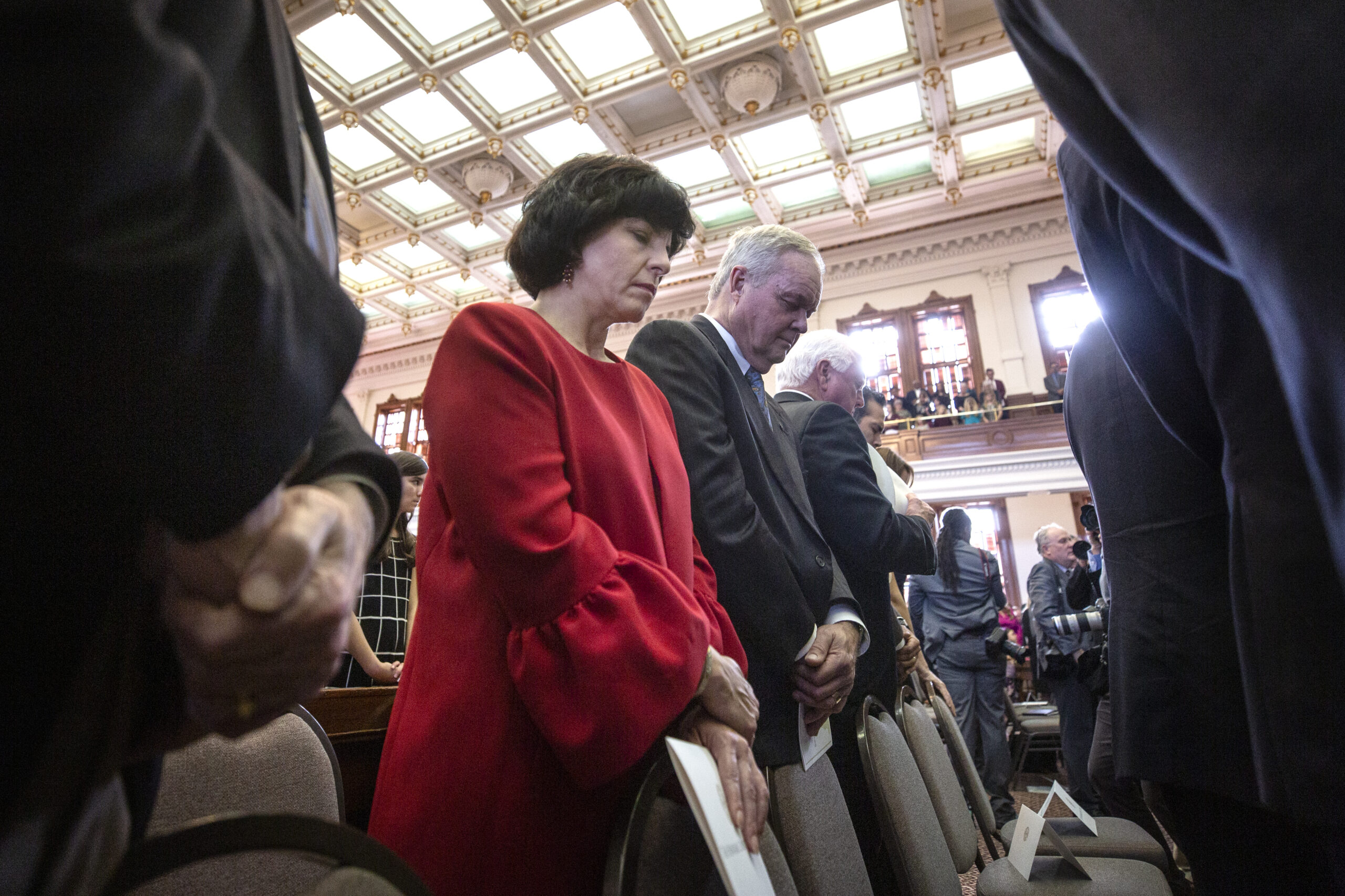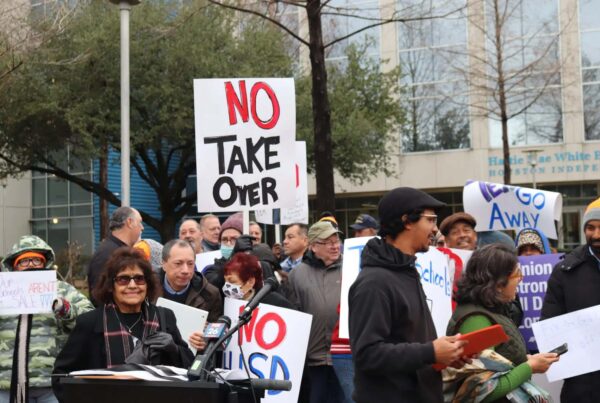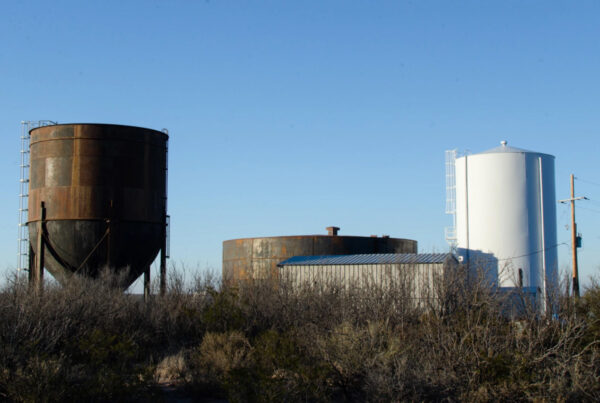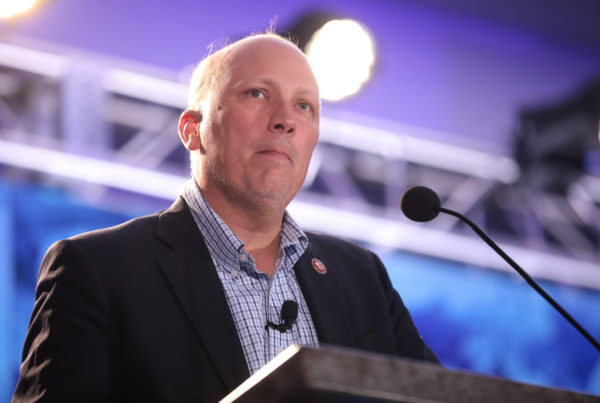In Texas, the oil and gas industry’s influence reaches far and wide – including to elected officials. And sometimes money from the energy sector goes into the bank accounts of those who are responsible for overseeing the industry – millions of dollars worth.
Russell Gold went on a deep dive into one such instance for Texas Monthly, where he’s senior editor. He spoke with Texas Standard about how lenient oversight rules have allowed two elected officials, state representative Tom Craddick, and his daughter, Railroad Commission chairman Christi Craddick, to earn millions from the oil industry they oversee.
Listen to the story above or read the transcript below.
This transcript has been edited lightly for clarity:
Texas Standard: So this story took a hard look at the earnings of the Craddick family. We’re talking about long-term state representative Tom Craddick, who’s also served as speaker of the House, and his daughter, Christi Craddick – who is chairman of the Railroad Commission, which is the state’s oil and gas regulator. First, for folks who may be unfamiliar, can you describe the influence that these two people have over the state’s oil and gas industry?
Russell Gold: Oh, it’s hard to overstate it. Tom Craddick has been in office, he’s been the state rep. from Midland, for over half a century. Most of that time, he sat on the Energy Resources Committee, which oversees oil and gas production and the Railroad Commission. And Christi Craddick, for the last ten years, has been either just a member of the Railroad Commission, but mostly the chair. So she is really the top regulator here in the state. So there literally is no other family that comes anywhere close to the kind of influence that they have over oil and gas here in Texas.
So you took a look at how much money the family was making from oil and gas. How much money are they making and how are they doing it?
Well, last year, 2022, the family – either Tom Craddick or one of various limited liability companies that the family controlled – brought in more than $10 million in royalties just last year. Just last year. And there really was nothing magical or remarkable about last year. I mean, I expect that they made comparable amounts the year before, and they’ll make about somewhere around the same amount this year. And what you need to understand, or what’s important to understand, is they don’t drill wells. They’re not an oil and gas company that is going out there and drilling a well and fracking it and getting the oil and gas out. We looked in dozens of counties across West and South Texas and found that the Craddick’s had interest in wells and leases in more than a dozen counties and had about 700 wells that they had these fractional interests in. And it added up to quite a lot of money.
Are they doing anything illegal or unethical here, as far as you can tell?
Well, those are very different questions. Legally, no. As far as we can tell, what they’re doing is completely legal. And when I reached out to the Craddicks for comment. One of the main comments they came back to me with was, “hey, we fully disclose everything that the state of Texas requires us to disclose.” Well, that’s true, but it’s really also an indictment of the state’s disclosure laws.
Let me give you an example. There’s one particular company out there called CrownQuest. It’s a big private Midland-based company, one of the largest oil and gas producers. And they have fractional interest in some very large CrownQuest wells. Well, they disclose under their ethics rules that they are making more than $46,000 last year from CrownQuest wells. Well, we actually crunched the numbers and they made more than $1 million. So they are disclosing, but it really doesn’t give you a sense as to how much money these guys are bringing in from the companies and the industry that they’re regulating.
Is there evidence, though, that the Craddicks have received any, I don’t know, preferential regulatory treatment from bureaucrats as a consequence of their positions?
Well, we looked into that question. And the best way for me to answer it is that there have been instances where state officials – oil and gas officials of the Railroad Commission – have had to vote and make decisions about wells that the Craddicks had direct financial interest in. And it certainly does raise the question that, if you’re a public official, you really should be unimpeachable. We should know that you’re making the decisions, whether we agree with them or not, that the decisions you’re making are in your view of what the public interest is. And in the case of the Craddicks, it’s really hard to figure out whether the decisions they’re making are for their own financial interest or whether the decisions they’re making are for the public interest.
Russell, you found that what the Craddicks are doing here isn’t illegal. Is it exceptional, you know, with how difficult it is to take a look at an elected official’s finances? Do you think there is much more to be unearthed, I guess, when it comes to who’s profiting from oil and gas in Texas?
Well, you know, that’s a really great question. I spent a lot of time digging through county mineral rolls where they tally up who owns what. And I can tell you that the Craddicks were the only big name in Texas politics that I encountered. But, you know, Upton County, one small county out in West Texas, the database of mineral owners runs to 180,000 lines. So there’s a lot that could be hidden away in there.
The other thing to remember – you asked me sort of how unusual this all is. If you’re a member of the Texas Public Utility Commission, you’re not allowed to own or do business with electric companies. If you’re an oil and gas regulator up in Oklahoma, you have to put into a blind trust any oil and gas holdings you have. And that’s done to make sure that, you know, we know that they’re making decisions not based on their own financial interests.
When it comes to the Texas Railroad Commission and Texas elected officials, that’s not the case. They are allowed to own interests. And one of the things you hear is that, “well, look, these are citizen legislatures. They’re supposed to have jobs on the side.” And that’s true. But we’re not talking about a rancher who comes down to Austin six months a year and sits on the AG Committee. We’re talking about a family that’s making multiple millions of dollars a year off the same industry that they regulate. It’s really a difference of scale from what we’ve seen before.













